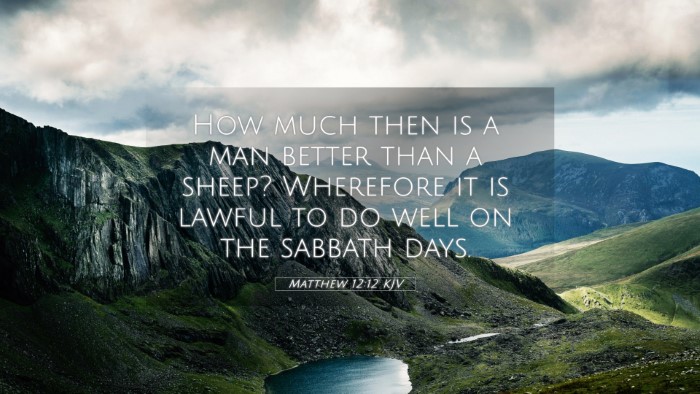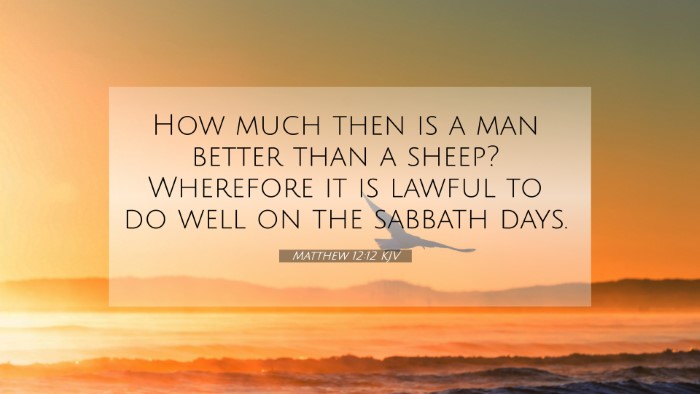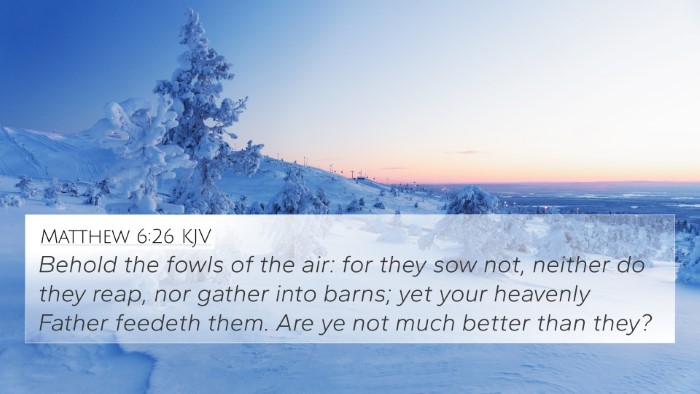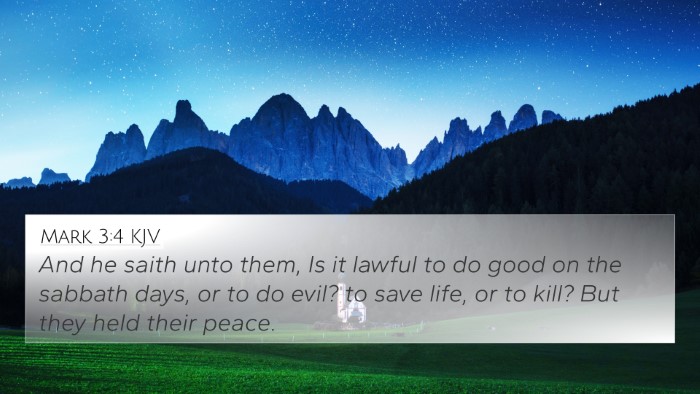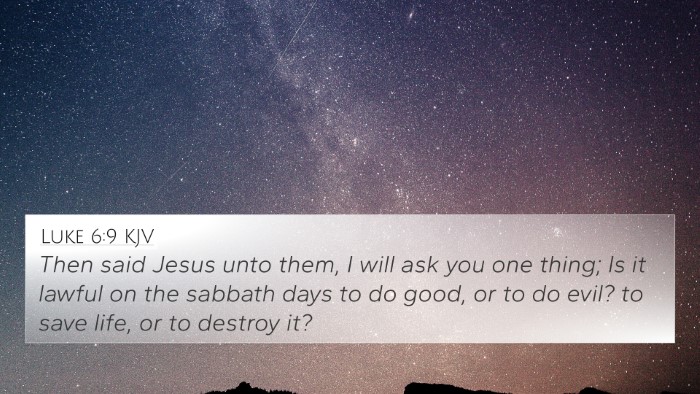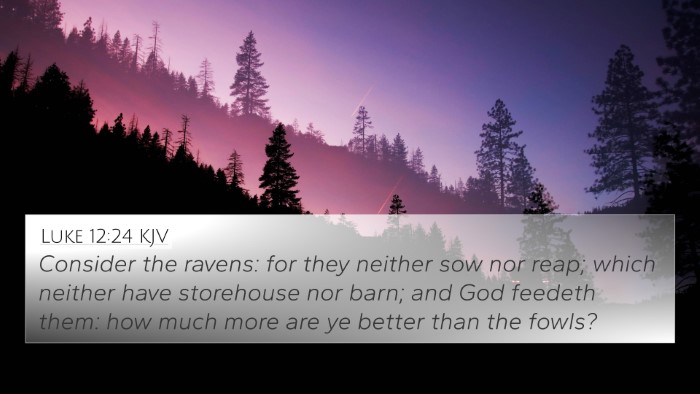Understanding Matthew 12:12
Matthew 12:12 states, "How much then is a man better than a sheep? Wherefore it is lawful to do well on the sabbath days." This verse encapsulates a significant principle regarding the Sabbath and God's intention for humanity. Here, we explore the meanings and implications of this scripture through various commentaries.
Context of Matthew 12:12
This verse is situated in a narrative where Jesus is confronted by the Pharisees about healing on the Sabbath. The surrounding discourse highlights the tension between the rigid interpretations of the Law and Jesus' compassionate approach to human need.
Commentary Insights
-
Matthew Henry:
Henry emphasizes that Jesus challenges the Pharisees' narrow view of the Law. He argues that the welfare of humans, made in God's image, supersedes ritualistic adherence to the Sabbath. The healing of the man aligns with the principle that acts of mercy are consistent with the observance of the Sabbath.
-
Albert Barnes:
Barnes interprets this verse as a clear declaration of the priority of compassion over legalistic traditions. He notes that if one would save a sheep on the Sabbath, it stands to reason that doing good for a person, who is vastly more valuable, is not only permissible but commendable.
-
Adam Clarke:
Clarke elaborates on the philosophical implications of the value of human life compared to animals. He contends that this teaching underscores God's view of humanity's inherent worth, directing us to prioritize love and mercy above strict adherence to religious rules.
Thematic Connections
Matthew 12:12 stands as a significant representation of the broader themes related to mercy, human dignity, and the proper interpretation of the Law. It invites readers to explore connections with other biblical texts that emphasize these themes.
Cross-References for Matthew 12:12
- Exodus 20:8-11: The Fourth Commandment about keeping the Sabbath aligns with the discussion of lawful actions on that day.
- Mark 2:27: Jesus’ declaration, “The Sabbath was made for man, and not man for the Sabbath,” complements Matthew 12:12 by revealing the intent behind the Sabbath law.
- Luke 14:5: A similar instance where Jesus questions the Pharisees about rescuing an animal on the Sabbath illustrates the same principle of mercy.
- James 2:13: Emphasizes mercy as a critical aspect of faith, resonating with the actions Jesus takes in Matthew 12.
- Hosea 6:6: God desires mercy and not sacrifice, echoing the sentiment found in Jesus’ teaching.
- Matthew 15:11: Challenges rituals while affirming the importance of inner purity over mere external observance.
- 1 John 3:17: Encourages believers to act with compassion, aligning with the principle expressed in Matthew 12:12.
- Matthew 7:12: The Golden Rule reflects the importance of treating others with kindness, similar to the justification Jesus provides in this verse.
- Galatians 5:14: The law is fulfilled in loving our neighbor as ourselves, reinforcing the teaching of mercy over legalistic constraints.
- Romans 13:10: Love does no harm to a neighbor, linking love and mercy as higher laws than mere rule-following.
Applying Matthew 12:12 Today
This scripture invites believers to reflect on their own practices regarding mercy, compassion, and observance of religious laws. It urges us to prioritize love and kindness in our interactions, especially within the context of institutional practices that might sometimes overshadow human needs.
Practical Takeaways
- Evaluate how personal or communal adherence to religious practices may affect the well-being of individuals.
- Promote acts of kindness, especially on days of religious significance, exemplifying the love Jesus demonstrated.
- Engage with others in discussions about the value of mercy in varying contexts, using Matthew 12:12 as a foundation.
- Utilize tools for Bible cross-referencing to further explore the interconnectedness of principles about compassion and the law.
Conclusion
Matthew 12:12 serves not only as a directive for understanding the intention behind the Sabbath but also highlights the overarching theme of love and mercy throughout scripture. By recognizing these connections and engaging in comparative Bible verse analysis, believers can deepen their understanding of God’s character and expectations.

